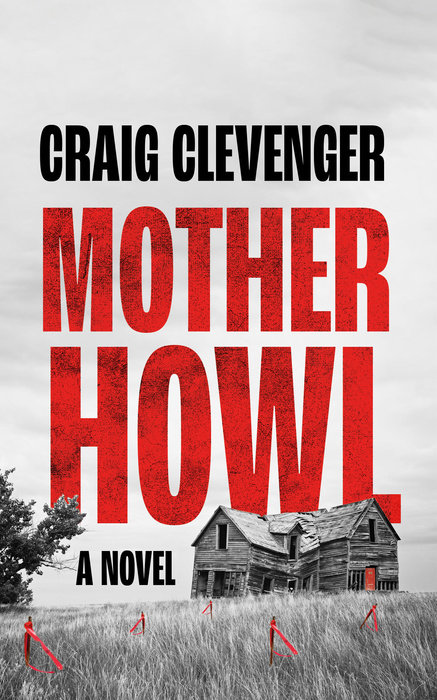
My experience with Craig Clevenger, in a nutshell: I was unfamiliar with the man’s work before this year. In early June, I noticed that Rob Hart recently interviewed Clevenger and, in his introduction to that interview, had a lot of enticing things to say about Clevenger up until this point. I’m generally fond of writing that could be described as Weird Noir, and my interest was piqued. I picked up Clevenger’s Mother Howl at a Barnes & Noble just north of the Bronx the day Cormac McCarthy died and read the book not long afterwards. The first thing I did upon finishing it? I ordered copies of Clevenger’s previous novels.
So, yeah, I liked it.
The events described in the first chapter of Mother Howl could function as a novel all on their own. They follow a young man named Lyle, who has the unfortunate luck to be the son of a serial killer. The revelation of his father’s terrible secret causes both Lyle and his mother to become pariahs in their community; Clevenger details the regular beatings Lyle receives as a result of his father’s actions. Soon enough, he’s hit the road — and eventually procures the services of a man who can provide him with a false identity. “Years later,” Clevenger writes, “he met a woman and at last wanted to settle in one place for good.”
If the events of the first chapter would function perfectly well as a novel, so too would the events teased by the sentence that brings it to a close. Except that’s not where Clevenger takes things; instead, he introduced the reader to a man named Icarus.Icarus is a large man — described as “[t]hree-hundred pounds of freshly incarnate flesh and bone” — who is either a fallen angel or a man believing himself to be one.
Icarus is, it should be noted, an absolutely compelling character — like one of the angels in Wings of Desire if John Fante had been responsible for its screenplay. “I watched you monkeys sharpen sticks so’s to roast marshmallows in front of cave paintings,” he tells a police officer interrogating him. “And I’m just one of the clean-up guys. A clock puncher.”
As for Lyle, by the time the novel returns to him, he’s in a relationship with a woman named Sera, who is pregnant with their child. That’s a good thing; what’s less good is the fact that Lyle is also on probation, and terrified with being sent back to prison. And if you immediately wonder how someone dedicated to living a furtive life out of any kind of spotlight has ended up in that position — well, that’s a question that hovers over a large chunk of the book.
Even beyond the parallels that the novel’s structure establish between Lyle and Icarus, this sense of both men as having been cast out of their home and having certain restrictions placed on them — Lyle’s from a legal perspective, Icarus’s from being nominally incarnate in a physical form — suffuses the book. Without the Icarus sections, the story of Lyle and Sera looking to make a life together would be taut and compelling; with his presence in the narrative, it takes on an unpredictability; you never know if the book is about to veer into the supernatural or if it will maintain a kind of plausible deniability over the truth of Icarus’s origins.
In the end, Mother Howl stands alone. There are plenty of works of fiction that it could be shelved near — blurbs from Steve Erickson, Brian Evenson, and Stephen Graham Jones offer a couple of good places to start — but there’s very little that it fits neatly beside. There are traces of crime fiction here and aspects of horror and plenty of passages for the philosophically inclined to ponder. But there’s really nothing else quite like it out there, and that’s one of the many qualities that makes it such a rewarding and immersive read.
***
Mother Howl
by Craig Clevenger
Datura; 304 p.
Follow Vol. 1 Brooklyn on Twitter, Facebook, and sign up for our mailing list.
